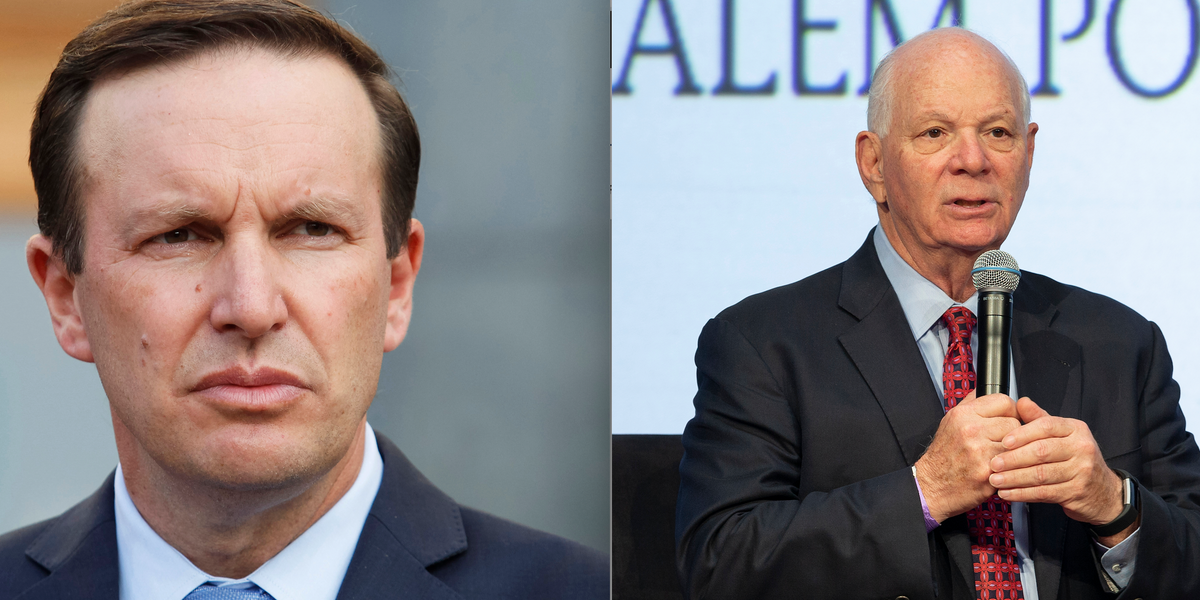UPDATE: On September 29, Gregory Meeks, Chairman of the House Foreign Affairs Committee urged a hold on the $235 million. Just before the deadline, newly minted Senate Foreign Relations Committee Chair Ben Cardin announced he would not allow the foreign military financing (FMF) to move forward, and would block future FMF and arms sales in the absence of "meaningful and sustainable" steps to better human rights in the country.
Time is ticking if senators want to reinstate a hold on U.S. military aid to Egypt following indictments this week against Sen. Robert Menendez (D-N.J.), who is accused of taking bribes in exchange for greasing the skids for Cairo to receive weapons and aid.
On September 22, the Southern District of New York indicted the New Jersey Democrat, his wife Nadine Arslanian Menendez, and three associates on federal corruption charges. Prosecutors alleged that the senator accepted bribes, including gold bars, stacks of cash, and a Mercedes-Benz convertible, using his position as chair of the Senate Foreign Relations Committee to benefit the government of Egypt. The FBI is now investigating Egyptian intelligence’s possible role.
Despite calls from fellow Democrats, Menendez is not resigning from the Senate and has pledged to run for re-election. He did, however, step down from his chairmanship of the SFRC.
The indictment shows how much the el-Sisi regime relies on U.S. security assistance and cooperation. The United States allocates a staggering $1.3 billion in foreign military financing to Egypt every year, amounting to over $50 billion in military aid since 1979. In turn, U.S. trained and equipped forces have shown a consistent pattern of gross violations of human rights in the Sinai peninsula.
A restriction Congress passed in March 2022, conditions $235 million in military aid on the Egyptian government meeting benchmarks to hold security forces accountable for human rights violations and to protect freedom of expression, association, and assembly. The annual appropriations legislation additionally mandates Congress to withhold another $85 million in the absence of progress in releasing political prisoners and continuing transnational repression.
In 2021 and 2022, continuing these efforts, the Biden administration reprogrammed $130 million in aid for Egypt, leading the Egyptian government to make concessions on human rights, including releasing over 1,000 political prisoners.
In 2023, however, the Biden administration elected to provide Egypt with the $235 million in previously earmarked funding, despite what local civil society groups describe as a sharp crackdown in civil liberties and political rights leading up to the “elections” scheduled for December.
Now, after this week’s indictments, several members of Congress, including the newly minted SFRC chair, Sen. Ben Cardin (D-Md.), have called for greater investigations on the Egypt issue. Others, like Sen.Chris Murphy (D-Conn.), have called for SFRC to promptly resume the hold on $235 million.
But Sen. Cardin has two days before the fiscal year ends to exercise his newly acquired privilege as SFRC chair to place an immediate hold on the entirety of the $235 million. This would send a strong signal that the U.S. can hold its allies accountable, not just its rivals.
With more available information in the new fiscal year, the Senate can hold hearings and conduct oversight to assess the impact of U.S. security assistance in Egypt and the extent of the alleged corruption before determining what, if any, military assistance should be sent.
- Menendez's New Jersey: Global power hidden in plain sight ›
- Menendez took bribes to help Egypt get weapons: Prosecutors ›















